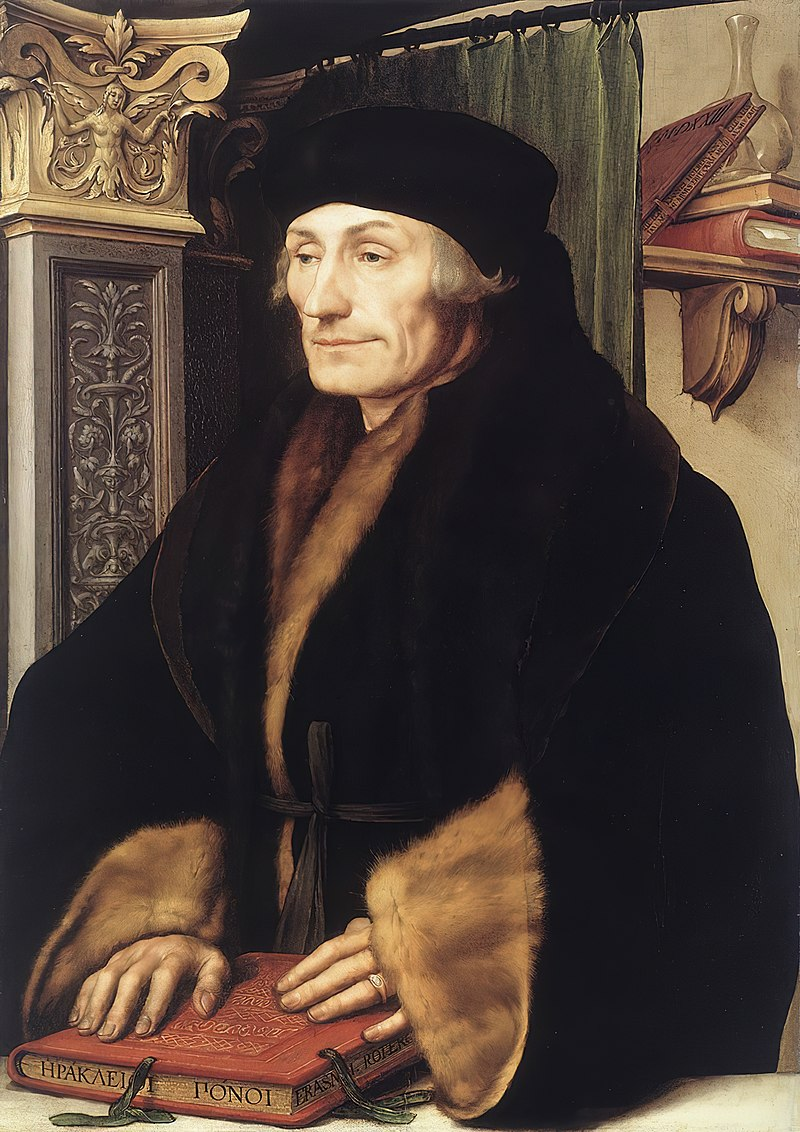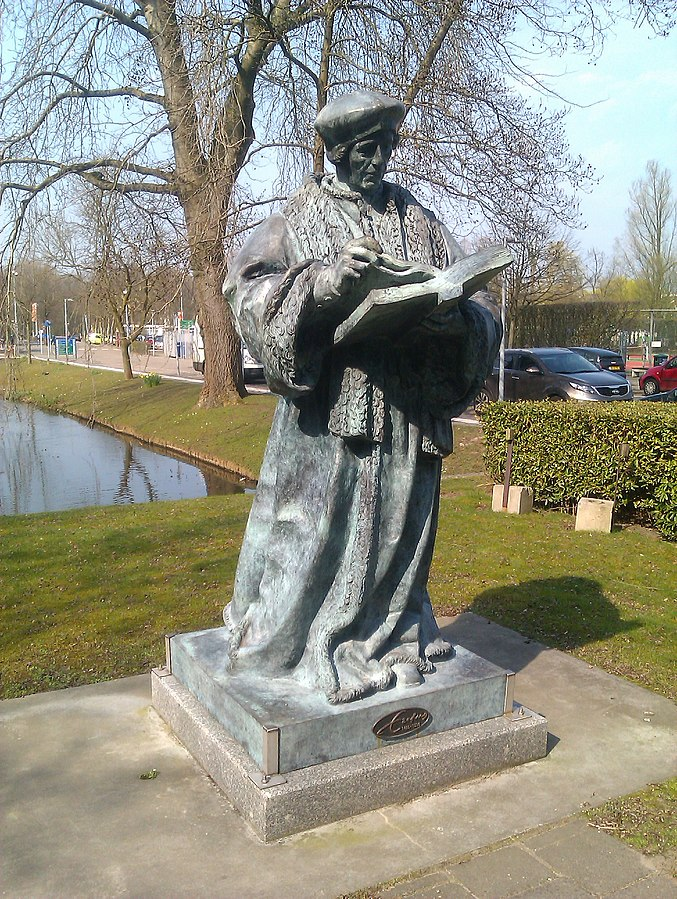wcag heading
“After sliding back into the booth and ordering coffee and a sandwich, Armand put on his reading glasses and opened the book he’d bought that morning at Myrna’s bookshop. Erasmus’s Adagia. His collection of proverbs and sayings.” (Kingdom of the Blind, page 179)
From the Adagia, we get perhaps Erasmus’ most famous line, and the basis for the title of Louise Penny’s 14th novel: “in the land of the blind, the one-eyed man is king.” Although Erasmus almost certainly cribbed the quote from Genesis Rabbah, a Judaic text that dates to around 300 CE, it is he who is credited with the proverb.

Desiderius Erasmus was born in Rotterdam in 1466 and is considered one of the greatest scholars of the northern Renaissance. Erasmus’ parents both fell victim to the Plague, so it’s curious to note that Louise uses the “plague” to describe the opioid epidemic that haunts Gamache throughout the novel.
Erasmus, like our beloved Gamache, was a true Renaissance man. He was a theologian, a philosopher, and a prodigious writer who, while alive, was responsible for roughly 20 percent of all books sales in Europe.

And, it was Erasmus who said, “When I get a little money I buy books; and if any is left, I buy food and clothes.”
A phrase all of us can certainly identify with!

